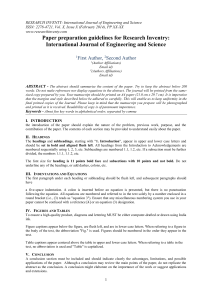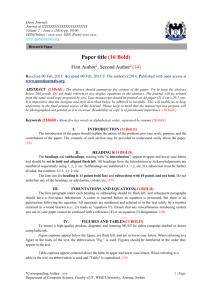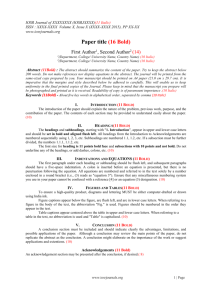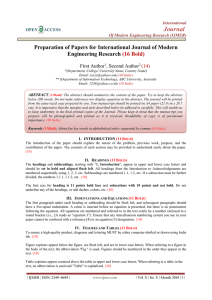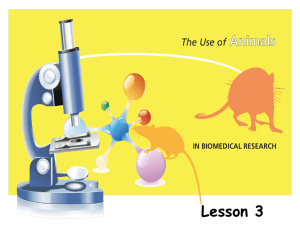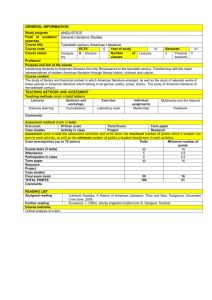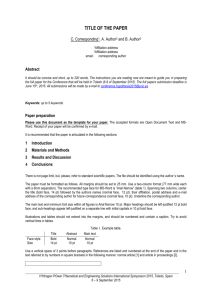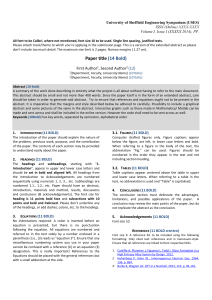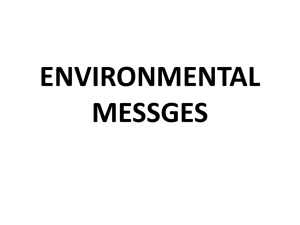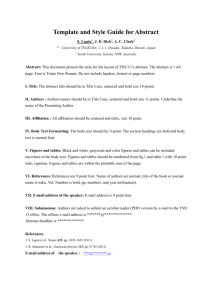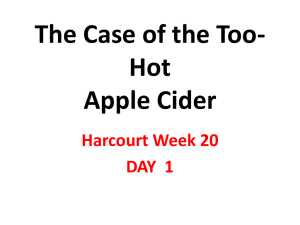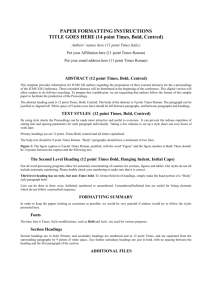Paper Template
advertisement
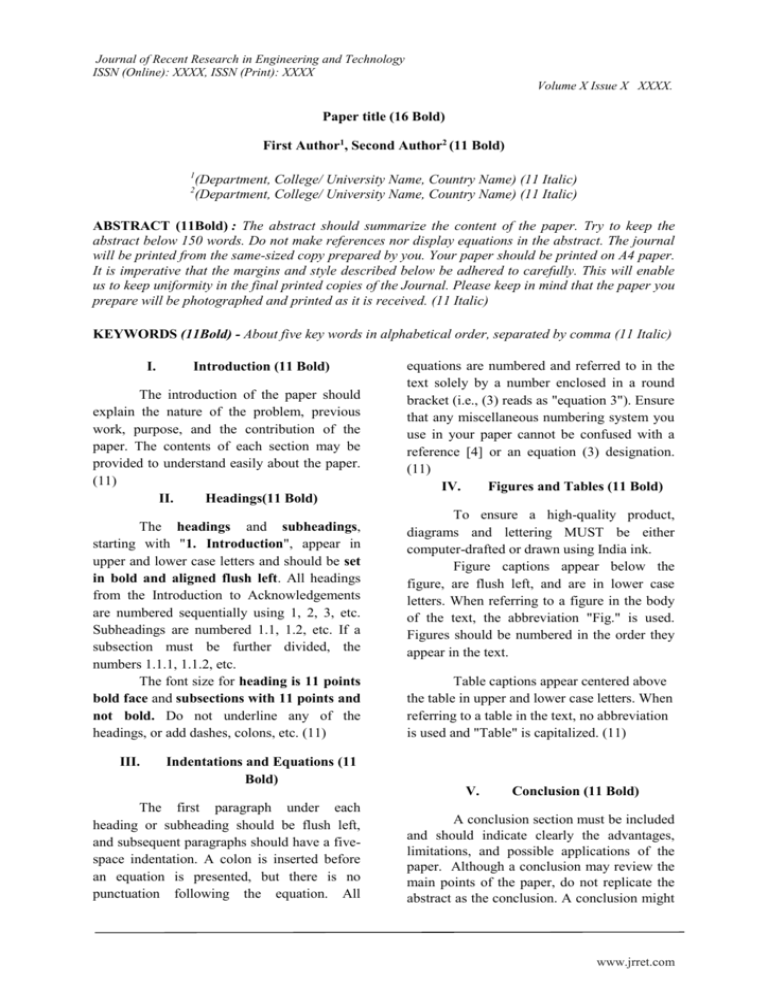
Journal of Recent Research in Engineering and Technology ISSN (Online): XXXX, ISSN (Print): XXXX Volume X Issue X XXXX. Paper title (16 Bold) First Author1, Second Author2 (11 Bold) 1 (Department, College/ University Name, Country Name) (11 Italic) (Department, College/ University Name, Country Name) (11 Italic) 2 ABSTRACT (11Bold) : The abstract should summarize the content of the paper. Try to keep the abstract below 150 words. Do not make references nor display equations in the abstract. The journal will be printed from the same-sized copy prepared by you. Your paper should be printed on A4 paper. It is imperative that the margins and style described below be adhered to carefully. This will enable us to keep uniformity in the final printed copies of the Journal. Please keep in mind that the paper you prepare will be photographed and printed as it is received. (11 Italic) KEYWORDS (11Bold) - About five key words in alphabetical order, separated by comma (11 Italic) I. Introduction (11 Bold) The introduction of the paper should explain the nature of the problem, previous work, purpose, and the contribution of the paper. The contents of each section may be provided to understand easily about the paper. (11) II. Headings(11 Bold) The headings and subheadings, starting with "1. Introduction", appear in upper and lower case letters and should be set in bold and aligned flush left. All headings from the Introduction to Acknowledgements are numbered sequentially using 1, 2, 3, etc. Subheadings are numbered 1.1, 1.2, etc. If a subsection must be further divided, the numbers 1.1.1, 1.1.2, etc. The font size for heading is 11 points bold face and subsections with 11 points and not bold. Do not underline any of the headings, or add dashes, colons, etc. (11) III. equations are numbered and referred to in the text solely by a number enclosed in a round bracket (i.e., (3) reads as "equation 3"). Ensure that any miscellaneous numbering system you use in your paper cannot be confused with a reference [4] or an equation (3) designation. (11) IV. Figures and Tables (11 Bold) To ensure a high-quality product, diagrams and lettering MUST be either computer-drafted or drawn using India ink. Figure captions appear below the figure, are flush left, and are in lower case letters. When referring to a figure in the body of the text, the abbreviation "Fig." is used. Figures should be numbered in the order they appear in the text. Table captions appear centered above the table in upper and lower case letters. When referring to a table in the text, no abbreviation is used and "Table" is capitalized. (11) Indentations and Equations (11 Bold) V. The first paragraph under each heading or subheading should be flush left, and subsequent paragraphs should have a fivespace indentation. A colon is inserted before an equation is presented, but there is no punctuation following the equation. All Conclusion (11 Bold) A conclusion section must be included and should indicate clearly the advantages, limitations, and possible applications of the paper. Although a conclusion may review the main points of the paper, do not replicate the abstract as the conclusion. A conclusion might www.jrret.com First author et al Place running title of your article here elaborate on the importance of the work or suggest applications and extentions. (11) Acknowledgements (11 Bold) An acknowledgement section may be presented after the conclusion, if desired.(11) References (10 Bold) This heading is not assigned a number. A reference list MUST be included using the following information as a guide. Only cited text references are included. Each reference is referred to in the text by a number enclosed in a square bracket (i.e., [3]). References must be numbered and ordered according to where they are first mentioned in the paper, NOT alphabetically. Note that the place of publication, publisher, and year of publication are enclosed in brackets. Editor of book is listed before book title. Theses: [4] D.S. Chan, Theory and implementation of multidimensional discrete systems for signal processing, doctoral diss., Massachusetts Institute of Technology, Cambridge, MA, 1978. (11) Note that thesis title is set in italics and the university that granted the degree is listed along with location information Proceedings Papers: [5] W.J. Book, Modelling design and control of flexible manipulator arms: A tutorial review, Proc. 29th IEEE Conf. on Decision and Control, San Francisco, CA, 1990, 500-506 (11) Examples follow: Journal Papers: [1] M Ozaki, Y. Adachi, Y. Iwahori, and N. Ishii, Application of fuzzy theory to writer recognition of Chinese characters, International Journal of Modelling and Simulation, 18(2), 1998, 112-116. (11) Note that the journal title, volume number and issue number are set in italics. Books: [2] R.E. Moore, Interval analysis (Englewood Cliffs, NJ: Prentice-Hall, 1966). (11) Note that the title of the book is in lower case letters and italicized. There is no comma following the title. Place of publication and publisher are given. Chapters in Books: [3] P.O. Bishop, Neurophysiology of binocular vision, in J.Houseman (Ed.), Handbook of physiology, 4 (New York: Springer-Verlag, 1970) 342-366. (11) www.jrret.com
